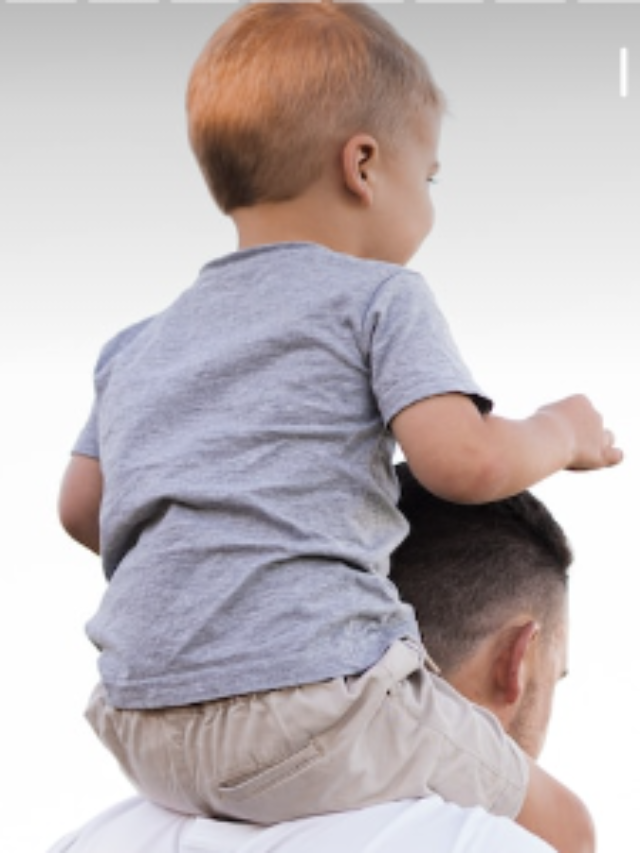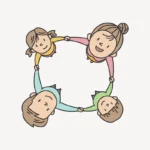There’s an age-old saying about parenting: “Do as I say, not as I do.” However, anyone familiar with children knows that they often don’t adhere strictly to what they are told. The reality is that children learn more from the actions and behaviors they observe in their parents than from any well-intentioned advice. As parents, we are the primary role models for our children, influencing how they treat themselves and others, and whether they learn to take responsibility for various aspects of their lives.
The “Do as I say, not as I do” Myth
Critiquing the traditional saying reveals its shortcomings. Children are perceptive, absorbing the world around them like sponges. They pick up on the subtle nuances of behavior, internalizing actions more deeply than words. The idea that children will follow verbal instructions while ignoring inconsistent behavior is a myth. If we want our children to embody certain values, they are more likely to adopt them if they witness us living those values authentically.
Role Modeling Treatments
Parents play a crucial role in shaping their children’s approach to treatments. Whether it’s physical, emotional, financial, relational, spiritual, or organizational treatment, children observe and internalize how their parents navigate these aspects of life. If parents want their children to be responsible, respectful, and caring individuals, it begins with modeling those behaviors in their own lives.
Responsibility in Various Life Aspects
- Physical Responsibility: If you want your children to be healthy and fit, you need to embody a healthy and active lifestyle.
- Emotional Responsibility: Treating oneself with kindness and managing emotions positively sets the tone for how children learn to handle their own feelings.
- Financial Responsibility: Modeling sound financial habits and avoiding excessive debt influences children’s attitudes toward money.
- Relational Responsibility: Cultivating respectful and caring relationships with oneself and others teaches children the value of healthy connections.
- Spiritual Responsibility: Demonstrating a connection to a source of love and guidance provides a foundation for a child’s spiritual development.
- Organizational Responsibility: Being organized and punctual communicates the importance of structure and responsibility in daily life.
Case Studies
Martin’s Case
Martin grew up in a family of high achievers. While financially successful, his parents’ judgmental and agitated behaviors influenced Martin deeply. He excelled financially but struggled with self-judgment and restlessness.
Angie’s Case
Angie had loving parents who were devoted to her. Despite their kindness, Angie developed self-neglectful habits. Her parents’ lack of self-care influenced her to seek external validation rather than taking personal responsibility.
Breaking Down Parental Behaviors
Analyzing specific parental behaviors is crucial. Martin’s constant self-judgment stemmed from his mother’s critical nature, while Angie’s neglectful self-care mirrored her parents’ patterns. These examples illustrate the domino effect of unhealthy parental habits on a child’s development.
Desired Values and Their Reflection
Parents need to define the values they wish to instill in their children. Whether it’s punctuality, honesty, self-esteem, or personal responsibility, these values are more likely to be embraced if children deeply respect their parents. Mutual respect is cultivated when parents authentically embody the values they advocate.
The Happy, Healthy, and Responsible Role Model
To be effective role models, parents should focus on nurturing their happiness, health, and personal responsibility. By prioritizing these attributes, parents create a positive and influential environment for their children to learn and grow.
Conclusion
Parents wield immense influence over their children’s development. The saying “Do as I say, not as I do” falls short in capturing the profound impact of parental behaviors. If we want our children to be happy, healthy, and responsible individuals, we must strive to embody these qualities ourselves. It’s not just about instructing our children on what to do but showing them through our actions. In this way, we become the role models we wish our children to emulate.
Read also : Positive Parenting Techniques 101: A Comprehensive Guide to Transform Your Effective Parenting Journey
Read also: Helicopter Parenting: Striking a Balance for Your Child’s Well-Being





